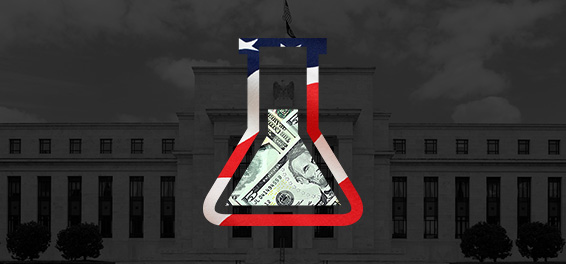
Janet Yellen, the current chairwoman of the Federal Reserve, finally spoke of the elephant in the room at a recent meeting in Boston. 1 While the news reports focused on the question of inflation rather than current plans to raise rates, the comments were very revealing.
The Not-So-Grand Experiment
Sober analysts have been noting in recent months that the Fed is trying to feel its way through a large set of economic unknowns. In reality, it is becoming increasingly evident that the central bank of the U.S. is groping its way along in an experiment. This is a process that it can neither effectively control nor predict the consequences that may result.
Unfortunately, central banks around the globe are participating in this experiment, exploring an economic theory that has never been tested. Yellen hinted at the growing concerns about these unknowns, noting, “The events of the past few years have revealed limits in economists’ understanding of the economy and suggest several important questions I hope the profession will try to answer.”
The very idea that the reigning power of the Fed and the FOMC is appealing to economists in general to “try to answer” some important questions is extremely unsettling. The Fed failed to raise rates as expected in September, and is now speaking to the possibility of a raise in December. However, Ms. Yellen admitted to great uncertainty about the Fed’s future plans, speak to their inability to interpret the signals being given by the labor market, inflation trends, and other market data points.
The chairwoman addressed the subject of inflation in the speech by restating a target average of 2% for the coming decade. It is evident the Fed is sending up balloons to prep the market. Vice-Chairman Stanley Fisher stated last month in a speech that the Fed now sees “the first stirrings of an increase in the rate of inflation.”
The Bully Pulpit as a Last Resort
In spite of this ongoing effort by the Fed and its officers to paint a positive picture, many in the market aren’t buying the effort. Instead of being sanguine about the world economy and the prospects of significantly increased inflation, a growing number of economists and market observers are sounding the alarm.
It is known by students of fiscal and monetary policy that Milton Friedman placed the blame for the Great Depression squarely at the feet of the central bank. While many take issue with that belief, few question the fact that ongoing efforts of the central bank to artificially control the markets will have consequences.
The misallocation of resources that the current policies of U.S. and global central banks are creating is driving many investors and traders to safe havens such as gold. Ironically, the current problems of world economies create the unprecedented danger of both deflation and inflation. This creates a real threat to individual wealth, particularly paper currency assets. In times of such historic uncertainty it is vital to diversify one’s portfolio in a manner that will protect value and purchasing power.
Additional Sources

